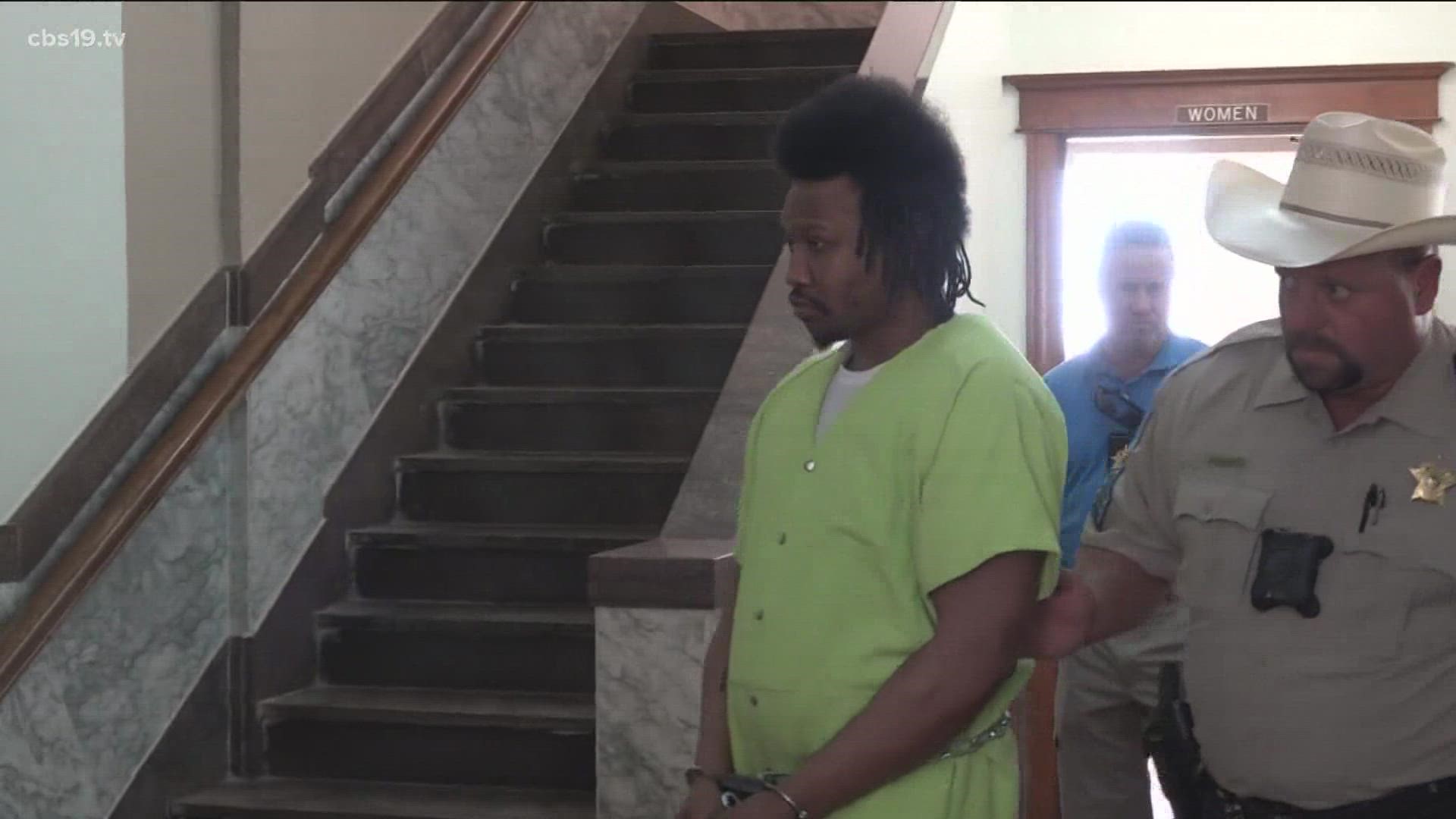LINDALE, Texas — LaNell Brown, older sister to Dabrett Black, advocates for veterans' mental health.
Brown said Black told her he was a truck driver in the military and didn't find out he was a gunmen until his trial.
Black was recently sentenced to life in prison for the shooting and killing of Texas Department of Public Safety Trooper Damon Allen.
"It shocked me that this lovable kid from Lindale, that was always smiling, had that big responsibility of having to shoot somebody if he had to," she said.
Brown said before the military, Black was "very lovable, joking, always being sarcastic. Like pulling pranks on people, always smiling no matter what."
But after serving three tours in Iraq, things began to change in her younger brother -- like a switch. Brown said her and her family noticed the changes after Black's second deployment.
"He was very hyper vigilant. He would get angry real quick. And he started distancing himself from family" said Brown.
She said his hygiene changed as well and he stopped cutting his hair.
Mentally, Brown says her brother "suffers from schizophrenia and delusional disorders". She said he didn't have these issues prior to his service.
Joshua Burks, MA, LPC, specializes in male and veteran mental health. Burks said those symptoms are not uncommon in veterans.
Burks said it's important to understand that veterans are "not broken or that there's something wrong with them. It's just they're doing the things they have been doing to keep themselves alive in a setting that is no longer adaptive."
Brown said she doesn't condone her brother's harm to the Allen family, but after serving 12 years in the military herself, she understands the psychological damage firsthand.
"The reason why I knew he was suffering from that is because I dealt with that as well," Brown said.
Brown said before she reached out to the Andrews Center for help, she was constantly checking doors and windows, and was "very paranoid about my kids," she added, "I needed to know where my kids were at all times. If I was in a restaurant, I would not sit in the middle of a restaurant, I would have to sit close to the door."
Brown said a lot of people in service tell their family members that they're OK, "but we're not." She said she tried to help Black because she didn't want him to go through what she went through.
Brown and Burks said for male veterans, it can be even harder to seek out help.
Brown believes there's stigma surrounding mental health within the Black community and said "we need to get out of that because if your loved one is drinking or using drugs, it's always an underlining issue for that."
"Silence is the killer for men. We're the silent sufferers many times," but for veterans "when you've been taught in the military that 'weakness will get you killed' I can see how hard it can be" said Burks.
Burks said all veterans need a safe space to talk and the first step is the hardest.
"I tell all my clients whenever I meet them, 'thank you so much for making that first step,'" Burks said.
Burks also recommends noticing the signs of PTSD, anxiety, depression and unhealthy coping mechanisms within your veteran friends and family before things can become potentially dangerous for them or others.
Burks said if he can tell any veteran one thing, he would say, "you're trying. You're doing the best you can. Don't ever doubt that."
Burks also recommended Camp V, The Green Zone, Code for Support Foundation and The Wounded Warrior Foundation.
Brown believes deep down, her little brother is still inside Dabrett Black. She said he was "the best soldier he could be."

